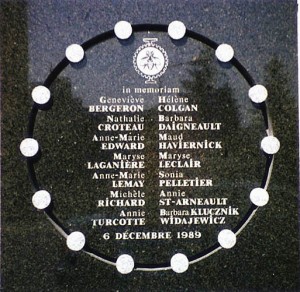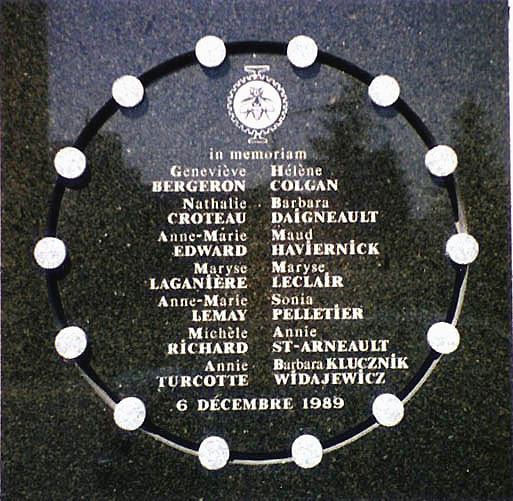 You can kill me as soon as you like, but you cannot stop the emancipation of women!
You can kill me as soon as you like, but you cannot stop the emancipation of women!
****************
This statement was made by a woman called Tahiréh in 1852 in Persia.
Tahiréh (the pure one) also know as Qurratu’l-`Ayn (Solace of the Eyes). These names were tributes to her character and to her beauty, but these were not all that she was. Her noble heritage, her renown for her intelligence, her knowledge of Islam, and her talent as a poet were paled by her audacity in challenging the strictures of Persian society in the mid 19th century. In fact, halfway around the world from the Seneca Falls New York Convention of women suffragists in 1848, Tahiréh removed her veil publicly as a sign of the need for the liberation of women in that part of the world. In 1852 she uttered the words I stated earlier as she was executed for her beliefs.
I didn’t know about the story of Tahiréh in 1989 when 14 women were murdered in an engineering school in Montreal but I was an avowed feminist at that time – and since my high school years in the early 1970s.
In 1990 I started a new job, coordinating a safe homes program for the women’s center in Golden, BC and it was in the first year of my employment that the first December 6 commemoration was held. It was in that job and at that point that being a feminist became a reality and not just a theory.
Over the next 10 years I learned what it meant to put theory into action as my colleagues and I advocated for and worked with women experiencing violence (and murder) for the simple fact that they were women. We didn’t tell women what to do, we supported them and provided as much information and resources as we could to give them the tools to make the decisions that would work for them. There are many stories I could tell you about fear and heartache but there are also many I could tell you about spirit and life affirming actions by women who had been held back and held down.
The emancipation of women will continue, as Tahiréh so rightly stated – but it is my hope, and I am sure all of yours that it will not long require the deaths of more women to bring it about.
*****************************
Dr. Marcella LaFever (University of New Mexico, 2005) is an Associate Professor in the Communications Department at the University of the Fraser Valley. She specializes in intercultural communication and brings that expertise to various subjects such as communication for workplace, instruction, social media, team and public speaking contexts.


Thank you for writing about this important topic Dr. LaFever.